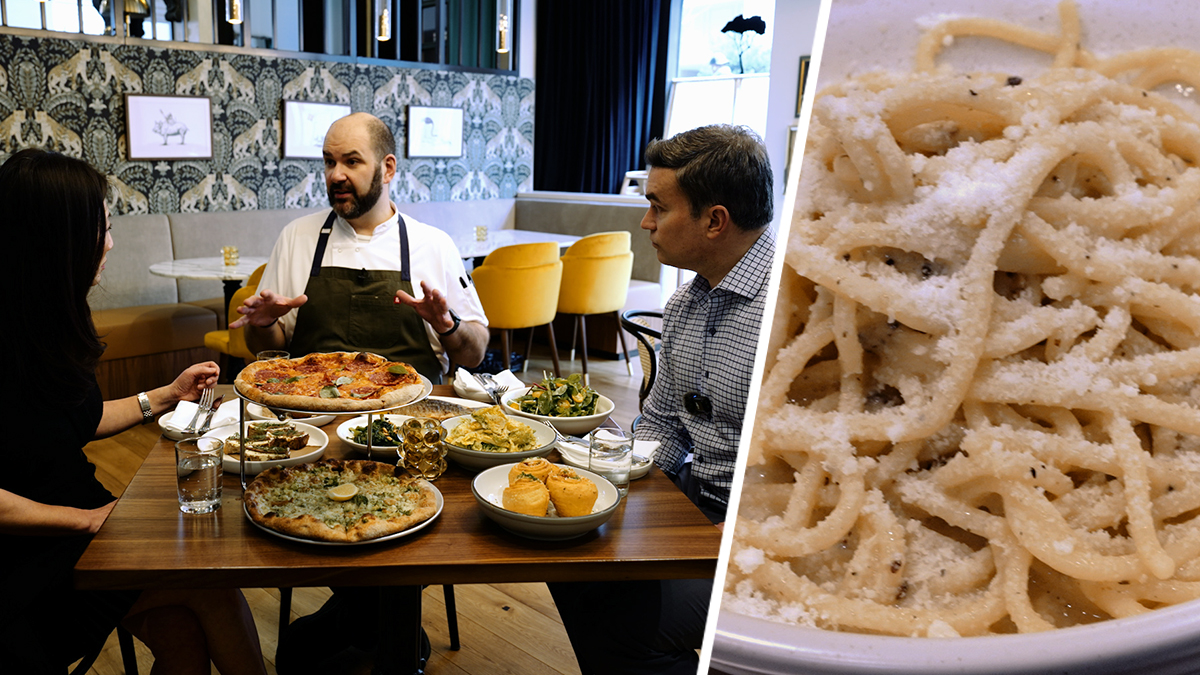
Sierra Jenkins was a young Black journalist working in a rapidly shrinking industry where colleagues often didn't look like her. But Jenkins, 25, was exactly where she wanted to be, covering social issues and education for her hometown newspaper in Norfolk, Virginia.
“She felt like she was where she needed to be,” said Denise Watson, features editor for The Virginian-Pilot newspaper and an unofficial mentor. “She loved finding good stories, telling good stories and the idea that what you write can make a difference.”
Jenkins’ ambitions, which included becoming an investigative reporter, were cut short Saturday when she was caught in the crossfire of a shooting outside a bar, Norfolk police said.
Jenkins and her best friend had gone out with a group of people Friday evening, the Pilot reported. An argument over a spilled drink led to the shooting that killed Jenkins and another person and wounded three others, police said.
We're making it easier for you to find stories that matter with our new newsletter — The 4Front. Sign up here and get news that is important for you to your inbox.
Jenkins was scheduled for the breaking news shift that day, and editors had reached out to her to cover the shooting before they learned of her death, the Pilot reported.
"We are absolutely heartbroken,” the newspaper's editor-in-chief, Kris Worrell, said in a statement.
“Her passion for journalism was undeniable and our community is better because of her reporting,” Worrell said.
Local
Washington, D.C., Maryland and Virginia local news, events and information
The profession has lost a fearless reporter who was more self-actualized than most journalists her age, current and former colleagues said.
Jenkins covered education at a time when school board members were being threatened in the region — and across the country — over coronavirus restrictions and how the nation's history of race can be taught.
" One of the pieces that she was proudest of was looking at what divisive curriculum is and what it means for teachers and classrooms," said Sara Gregory, a former Pilot colleague. “She wasn’t writing about the politics of it. She was writing about how individual teachers are trying to figure out what this means for teaching intellectually honest history to their students.”
Watson, the features editor, said Jenkins also was interested in showing the stresses that both teachers and parents have faced during the pandemic.
“Maybe if parents saw what it was like for teachers, parents would be more sympathetic," Watson said. “And if teachers read stories about what parents are trying to juggle (teachers would be more sympathetic). It was this opportunity to show the world what’s going on and how we can maybe all try to work to make it better.”
Jenkins also wrote about a Black family who said they faced hostility from a neighbor playing loud music and monkey sounds.
“It was difficult for her," Watson said. "You can't cry. You just have to do it. And she captured some of the audio. She was a professional about it.”
Ana Ley, another former Pilot colleague, said Jenkins didn't treat that story as some kind of “oddity.”
“Sierra gave the story complexity and context that made it interesting in a way that was like, ‘OK, this is why this matters. This is why this was so upsetting to this family,’” Ley said.
Jenkins grew up in Norfolk, according to the Pilot. Her father, Maurice Jenkins, told the newspaper that she was always a responsible child, someone who didn’t need to be told to do her homework. She had already paid off her student loans from college and had bought her third car.
“Sierra — and I don’t say this because she was my daughter — she was the perfect child,” Maurice Jenkins told the Pilot. “An absolute Daddy’s girl. Just a caring and a loving individual.”
Jenkins attended Tidewater Community College before transferring to Georgia State University, where she majored in journalism with a minor in African American studies.
Maurice Hobson, an African American studies professor at Georgia State, said Jenkins was the best student he ever taught. She was someone who “galvanized” other students during discussions about racial inequities that ranged from voter suppression to the wage gap.
The deep fire that burned within Jenkins was fueled by her love for her family, Hobson said.
“I think that she really did want to be the best possible example to her younger siblings as she could possibly be,” Hobson said.
Before Jenkins joined the Pilot in December 2020, she interned at Atlanta Magazine and CNN and had worked as a news assistant for CNN Health, the Pilot reported.
Atlanta Magazine wrote that Jenkins had written an introductory email to staff when she started her internship. Jenkins wrote that she was "passionate about storytelling because of its ability to educate and inspire others. Inspire others to live authentically, take risks, challenge the status quo, and unlearn the ideologies society has conditioned some to believe.”
“I think she probably did more for us than we did for her, ultimately," said Steve Fennessy, the magazine’s former editor-in-chief and executive editor.



